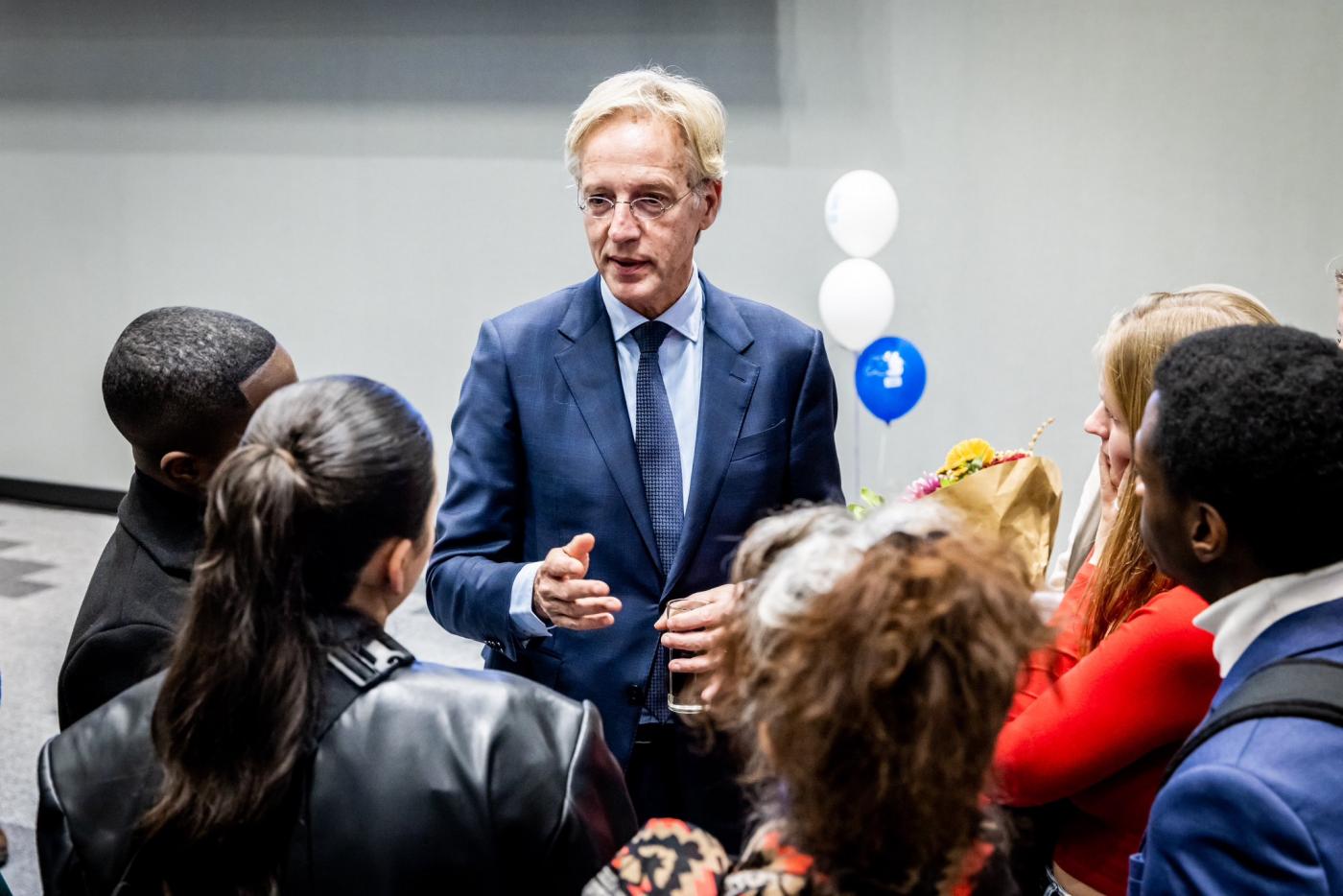New bill on internationalisation:
'The Netherlands relies on knowledge'

The anglicisation of higher education and the influx of foreign students have been a hot topic in Dutch politics for years. It even became one of the main themes in the most recent elections.
However, closing the door to international talent isn’t a good idea, outgoing Minister Robbert Dijkgraaf feels. “The Netherlands relies on knowledge”, he said in a press release accompanying his bill on Monday. “So we cannot do without international talent, whether for science, the labour market or the quality of the programmes themselves.”
He does think internationalisation is entering a new phase, where other questions are becoming important: where do we need international students, how do we keep them in the Netherlands and are degree programmes staying accessible?
Accessible
To start with the latter question: in programmes with a restriction on the number of first-year students, Dutch prospective students have to compete with their foreign counterparts in the selection process. The bill makes it possible to distinguish between the English-taught and Dutch-taught tracks. This allows for restricting the intake into the English-taught track, while keeping the Dutch-taught one open.
This possibility has been eagerly anticipated by the universities, which have been asking for ‘instruments’ to manage the influx of international students for years. Equally eager, the House of Representatives adopted a controversial amendment by VVD that anticipated this development.
The bill also provides programmes with an ‘emergency brake’: they can implement an enrolment restriction overnight if a lot of prospective students suddenly enrol. And what’s also new: programmes are allowed to establish a maximum number of students from outside Europe.
Housing
Internationalisation has sparked debate in several ways. For example, some cities are experiencing a considerable housing shortage, caused in part by the arrival of students from abroad. This is less of a problem in other cities. The regional economy is also a factor: tech companies around Eindhoven are keen to welcome international students and researchers.
This is why Dijkgraaf doesn’t want to use a one-size-fits-all approach for higher education institutions. They have to make their own decisions. Or, as he puts it: they are given control. The bill makes it possible to intervene “carefully, specifically and appropriately”, but “with universities and universities of applied sciences themselves still collectively taking the lead in the first instance.”
But he’s not handing over the reins completely. The minister wants to make ‘administrative arrangements’ with the education institutions, for example on the recruitment of students abroad and the language of instruction.
Dutch
The latter subject, language of instruction, also plays an important role in the bill. In the future, institutions will have to ask for permission if they want to start a non-Dutch-taught programme. What’s more, the current programmes will also be scrutinised: are they allowed to be in English or not?
Such a request is assessed against several criteria, such as the regional circumstances, the labour market, the international positioning of the programme and how unique it is.
Moving forward
Four parties (PVV, VVD, NSC and BBB) are currently negotiating the formation of a new cabinet. The next minister may have entirely different opinions on some matters. After all, Dijkgraaf himself binned the bill drafted by his predecessor (and fellow party member). So it’s uncertain what will happen moving forward.